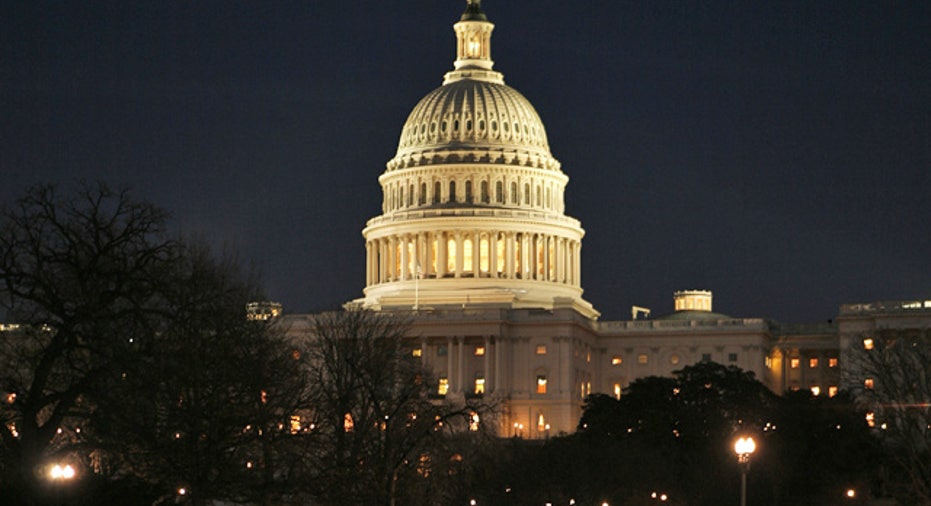House Resumes Debate on Tax-Cut Bill

The House Representatives, after a dispute among Democrats, on Thursday headed toward anticipated passage of the tax deal that President Barack Obama struck with Republicans that would likely boost the economy but also deepen the deficit.
Democratic leaders hoped to approve the bill later on Thursday or early on Friday, after the bill snagged in a disagreement over how liberal Democrats could vent their disapproval of elements of the deal that they say are too favorable to the rich.
The $858 billion package would extend tax cuts for millions of Americans, even the wealthiest, that are set to expire on January 1. It also would renew jobless benefits and provide a variety of other tax breaks for working families, college students and businesses.
Democratic leaders agreed to change the debate rules to let opponents more clearly register their objections.
A Democratic amendment to change an estate tax provision to make it less generous to wealthy estates was expected to fail.
A senior Democratic aide said afterward that, a vote on passage could slip until after midnight, but that leaders expected it to be approved.
The measure was expected to provide at least a short-term boost to the U.S. economy but at the same time pile on a $14 trillion national debt that some fear is nearing dangerous levels.
IMF Managing Director Dominique Strauss-Kahn, in an interview with Reuters, said economic stimulus is vital for the United States because "growth is the main problem to fix."
"But, having in mind always that there is no free lunch. And so what you do today has to be repaid later on. And you cannot just do it now without saying, 'How are you going to repay it?'" Strauss-Kahn said.
VICTORY FOR OBAMA, REPUBLICANS
If approved, the bill represents a major victory for Republicans, who fought hard to keep taxes low on the highest incomes, and marks a move to the political center by Obama after his party lost congressional elections in November.
Despite their concerns about the growing deficit, Obama and Republicans who helped him craft the initiative put a higher priority on extending tax cuts. Without fast action, nearly all working Americans would face higher taxes on their earnings starting on January 1.
Most of the House's 179 Republicans are expected to back the tax bill, with a core of 40-50 moderate Democrats likely joining them to propel the legislation to passage.
The Senate easily passed the bill on Wednesday in a bipartisan vote.
The legislation would extend for two years income tax cuts enacted under Republican former President George W. Bush, with Democrats softening their earlier fervent opposition to keeping the cuts for the richest Americans.
"I don't like the benefits for the top two percent, but on the other hand I recognize what we got in terms of short term stimulus is huge," Democratic Representative Jane Harman said.
Republican Representative Mike Pence, breaking ranks with most of his party, said, "It's a bad deal for taxpayers, it'll do little to create jobs and I cannot support it."
Many economists predict the tax package could add up to 1 percentage point to economic growth next year, due partly to a one-year cut in the payroll tax and removal of uncertainty about taxes in general.
With more money in their pockets, Obama hopes people will spend more and thus create jobs in an economy stuck with unemployment near 10 percent.
The measure would also prevent a spike in taxes on capital gains and dividends, renew long-term unemployment insurance and provide new tax relief for students, working families and businesses.
Particularly irksome to House Democrats is a provision raising the exemption threshold for the estate tax from $3.5 million in 2009 to $5 million, and cutting the estate tax rate from 45 percent to 35 percent.
Obama's current position on taxes contrasts sharply with his stance earlier this year when he and his fellow Democrats fought against renewing tax reductions for the wealthiest Americans -- those with household incomes above $250,000 -- while supporting continued cuts for middle-class taxpayers.
But with Republicans drawing a line in the sand on the issue and scoring major victories in November 2 congressional elections -- taking control of the House and making gains in the Senate -- Obama acquiesced on tax cuts for upper-income Americans.
Democrats did win a desired extension of unemployment benefits, which were expiring for millions of people shut out of jobs in the lackluster economy.



















